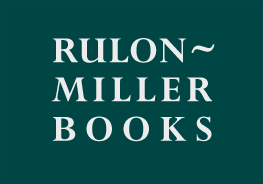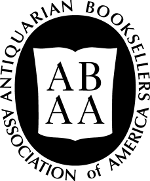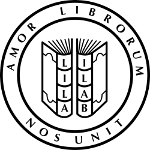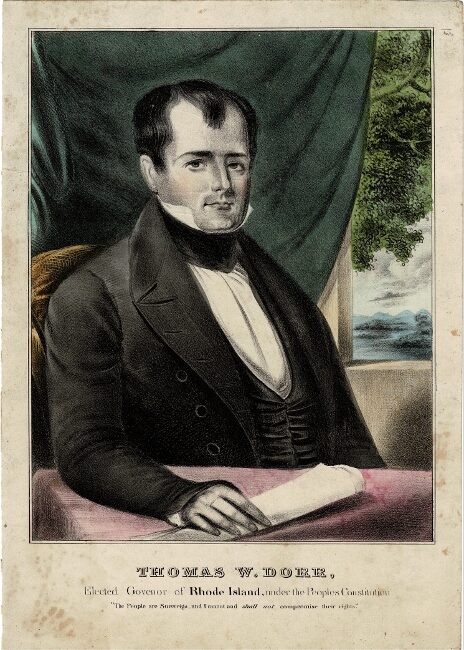Rhode Island
Introduction
This catalogue was largely composed during the age of Covid, March to September, 2020, and I dare say this is likely the largest catalogue of books and manuscripts on the smallest of the United States, the Ocean State, Little Rhody, a.k.a. Rhode Island.
Rhode Island has a history unlike any other of the original thirteen. It was the first to declare independence from Britain, and the last to ratify the Constitution. As any Rhode Island grade-school student will tell you, it has the longest name of any state: The State of Rhode Island and Providence Plantations [see note below], and has the smallest land area. Its state capitol has the second largest unsupported dome in the world (after St. Peter’s in Rome). It was the first colony to enact a law against the slave trade, even though it was almost certainly more involved in the slave trade than any other colony or state. Rhode Island boasts the first act of armed rebellion against the British in the years leading up to the American Revolution, when a group of men boarded and burned the revenue schooner Gaspee in Narragansett Bay in June, 1772.
With its early textile and cotton mills, Rhode Island is often credited with being the birthplace of the Industrial Revolution in America. The oldest Fourth of July parade in the country is still held annually (even in this year of perfect vision) in my hometown of Bristol. Providence is the home of the first Baptist Church in America, and Newport the home of the first synagogue. And while many people know that Roger Williams was the founder of Rhode Island, only Rhode Islanders know that the first graduate of Brown University (then, Rhode-Island College) was William Rogers.
I lived there until I was 28 years old. Rhode Island has lived in me ever since I left.
As the text alone to this catalogue ran to over 300 pages, publishing a printed catalogue with appropriate illustration would have proved prohibitive. Accordingly, we have created a special website for this catalogue which will be maintained indefinitely, but with prices omitted following the completion of a sale.
The books and manuscripts herein come almost entirely from two sources: the inventory of M & S Rare Books in Providence (the late Dan Seigel, proprietor); and my own personal collection of Rhode Island material which I have been assembling since my move to Minnesota from Rhode Island in 1979. The genesis of my own collection was the inventory of the Current Company, my father’s antiquarian firm in Bristol which morphed into Rulon-Miller Books about the same time. I have added to that core collection over the years as opportunities and finances have allowed.
The M & S inventory (which is owned in partnership with Lorne Bair, Dan De Simone, Garrett Scott, and John Thomson of Bartleby’s Rare Books) is quite strong in both printed and manuscript material from the Dorr Rebellion, as well as the colonial era and early statehood. Of note here are the small archives of letters of Welcome Arnold Greene (and others) on the Dorr Rebellion, and the Captain Thomas Russell, Jr. letters from the American Revolution; and, larger archives of the Carpenter and Clarke-Hazard families; and the extensive business archive of the Whitin Machine Works & Textile Manufactories.
My own collection was strong in Rhode Island maritime material, including much from the D’Wolf, Howe, Leahy, and Herreshoff families, as well as material on Bristol, naturally enough. (As it turned out, I grew up in a house built for James D’Wolf, the notorious slave trader, a fact that was lost on me until many years after I was out of it.) Most of the slave trade material here also comes from my collection, as do the D’Wolf letters, logs, and account books, the long run of Rhode Island almanacs, and what I suspect is the first piece of Rhode Islandiana, Roger William’s copy of a 1568 edition of Justinian, the only known book from his personal library, with his bold ownership signature on the title page.
Many of the catalogue entries for M & S material were compiled by Dan Seigel. All were edited by me but I have not checked every last fact or date. If there are any mistakes, consider them mine, and mine alone.
Taken together, these two segments, mine and Dan’s, offer an unusually large resource for Rhode Island history and culture, and as there is much unpublished manuscript material, a terrific source for original research.
* * * *
A note on the spelling of D’Wolf, D’Wolfe, DeWolf, DeWolfe, and De Wolfe: Needless to say, the spelling varies based on the family member or family of origin, and in more than one case, family members used at least two different spellings. Here, we have not standardized the name, but rather have treated each as the name appears. Hence, the alphabetical sequence of the clan in this catalogue is interrupted.
* * * *
And a final note on the name of Rhode Island. On November 3, election day 2020, the citizens of Rhode Island voted to remove “Providence Plantations” from the official name. Henceforth, it shall be merely Rhode Island and Rhode Island only.
Acknowledgements
I was early influenced by Eleanor B. Monahan who taught an 8th-grade class in Rhode Island history at Moses Brown School, in Providence. Other early influences were Stuart Sherman of the Providence Public Library, later of the John Hay Library at Brown; and Margaret Bingham Stillwell, also at Brown, both of whom sold books to the Current Company back in the late 1970s and who were both enthusiastic that a relative youngster took some interest.
And while Stanley and Martha Livingston and the whole Livingston clan had virtually nothing to do with this, per se, I’d be remiss to leave them out of the mix. Marty Livingston was a direct descendant of Roger Williams, and a life-long friend of my mother, Ann. I spent all of my formative years hanging out with the Livingston family, and was thereby brought into contact with others steeped in Rhode Island history and lore.
Belatedly, I offer thanks to Dan Seigel who made this catalogue possible by giving me and my partners the opportunity to pick up where he left off.
While at times it seemed as if I were working in a vacuum, especially during the height of Covid in the summer months, many people offered assistance when I had questions and problems. I mention again my partners, Lorne, Dan, Garrett, and John, and their partners Lee Ann, Angela, Betsy, and Karen. Maria Lin spent the summer writing code to create the webpage you’re now looking at; and Rhiannon Bell arrived here just in time to catalogue some of the last entries. Help has also come from Luc Willett, our summer intern who assisted greatly with the photography. I also note Victoria Forsberg-Lary, manager of Cellar Stories Books in Providence; the Dorr scholar and professor Russell DeSimone; and last but not least, my mother, Ann Dixon Leahy Rulon-Miller, who with her late husband Robert, Sr. introduced me to the ocean of the Ocean State, the sublimities of Bristol and Narragansett Bay, Rhode Island history, and old Rhode Island families, and who, at 98 years still recalls names and dates like nobody’s business.

A note on OCLC
As is now the norm, OCLC counts are tentative, at best, as we recognize that searches using different qualifiers will often turn up different results. Searches are now further complicated by the vast numbers of digital, microfilm, and even print-on-demand copies, which have polluted the database considerably, making it difficult, without numerous phone calls or emails, to determine the actual number of tangible copies. Hence, even though the counts herein have been recently checked, most all should be taken as a measure of approximation.





